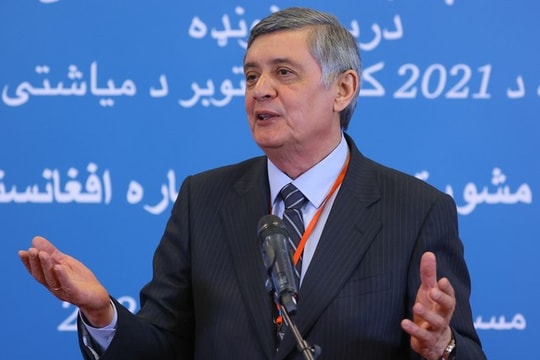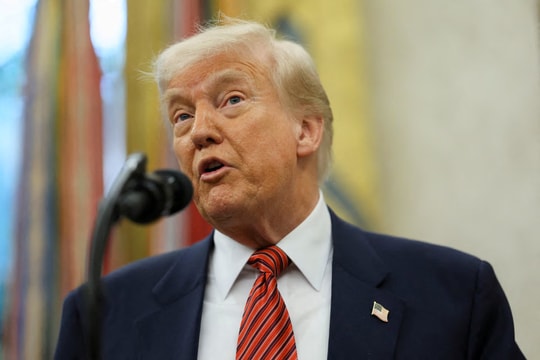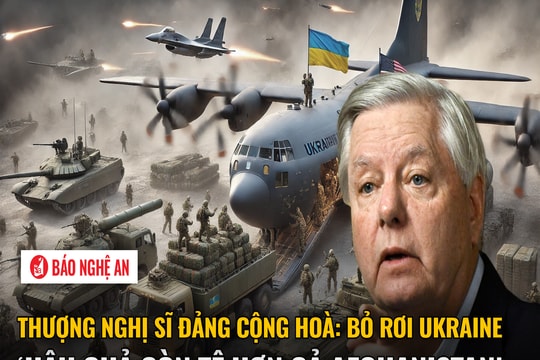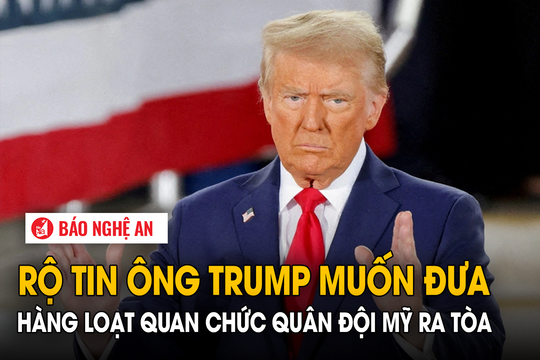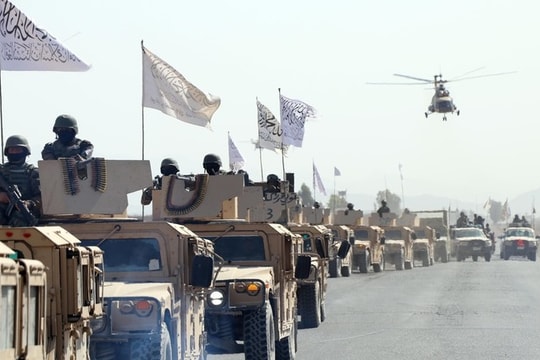US sends special envoy to put pressure on 5 countries as fighting increases in Afghanistan
(Baonghean.vn) - Despite the peace agreement signed between the US and the Taliban in February, fighting between the Afghan government forces and Taliban rebels has continued to increase in recent days, after the Kabul government refused to release nearly 600 Taliban prisoners.
Faced with these complicated developments, the US has hastily sent special envoy in charge of Afghanistan Zalmay Khalilzad to visit five related countries to ensure the peace process in the South Asian country proceeds as planned.
busy schedule
Departing midweek, Special Envoy Zalmay Khalilzad's destination is a series of 5 countries related to the Afghanistan issue. They are Qatar, Pakistan, Norway, Bulgaria and of course Afghanistan. It should be recalled that the US government is on the path to reduce troops in Afghanistan according to the agreement reached in February with the Taliban. This agreement is to pave the way for formal peace negotiations between the Afghan government and the Taliban.
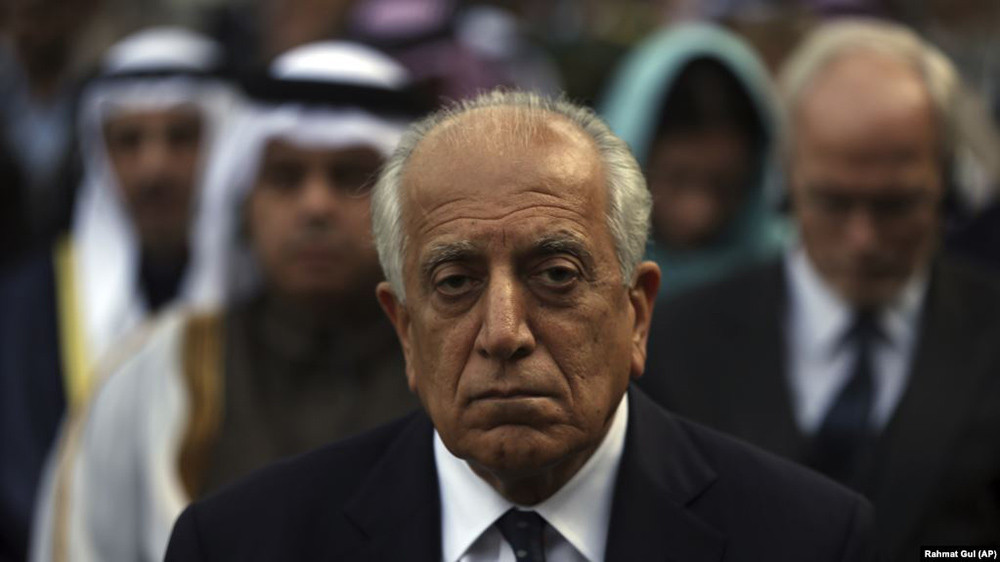 |
| US Special Envoy for Afghanistan Zalmay Khalilzad. Photo: AP |
Until now, the Taliban group has refused to sit down at the negotiating table with the Kabul government because it considers it a "puppet" of Washington. Therefore, after reaching the first step, an agreement between the US and the Taliban earlier this year, the responsibility of special envoy Zalmay during this trip is to ensure that both sides can sit down at the negotiating table.
In Qatar and Afghanistan, Mr. Zalmay is said to be tasked with emphasizing the resolution of remaining issues before the intra-Afghan talks, namely the final prisoner exchange and the reduction of violence, two thorny issues that are hindering progress toward launching peace talks.
In the latest statement, the US State Department also emphasized that although prisoner exchanges have made significant progress, this issue needs further efforts to be resolved as soon as possible. And the capital Doha of Qatar has the advantage of being the place where many rounds of negotiations between the US government and the Taliban have taken place in recent times.
In Pakistan, Mr. Zalmay is likely to seek Islamabad’s support in pushing forward the neighboring country’s crucial internal negotiations. Meanwhile, in Norway and Bulgaria, Mr. Zalmay will update NATO allies on the Afghan peace process. According to observers, the parties involved in the Afghan issue have probably never been “closer” and working more closely as they are now, as they begin to enter into internal Afghan negotiations – an important step toward ending the 40-year war in this South Asian country.
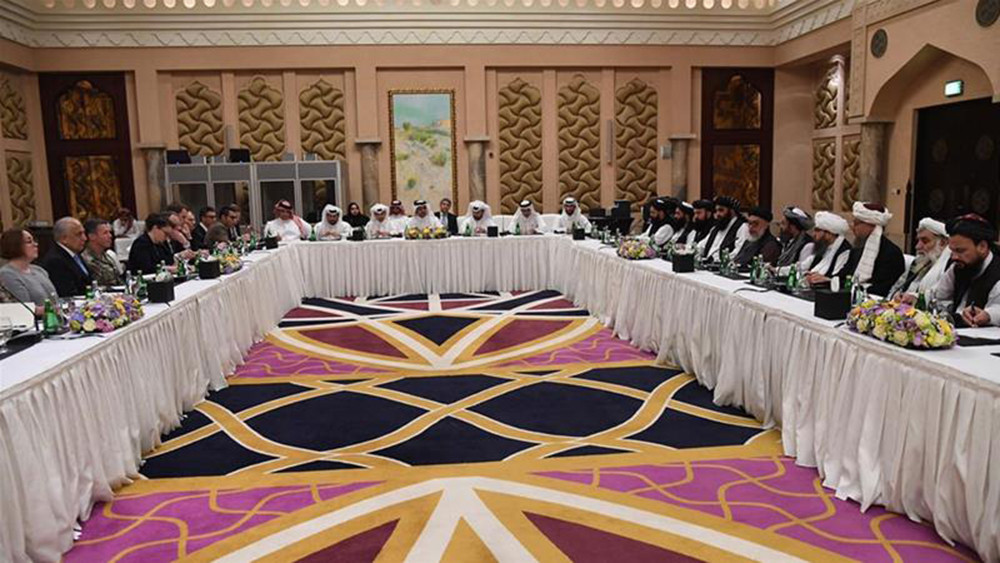 |
| A negotiation between Mr. Zalmay Khalilzad and the Taliban in Doha, Qatar. Photo: Al Jazeera |
Unpredictable terrain
There is no need to discuss the Washington administration’s determination to withdraw troops and be able to handle the costly war in Afghanistan smoothly. However, the unpredictable battlefield with elements that have had grudges for decades is making the peace process that the US desires encounter many obstacles.
During the week, Special Envoy Khalilzad himself had to condemn the July 22 airstrikes by security forces against Taliban insurgents in the western border with Iran, which killed 45 people, including Taliban members and civilians. In addition, on July 21, the Afghan Ministry of Defense also announced a suicide bombing targeting a military convoy in the central province of Wardak, killing at least eight soldiers and injuring nine. Notably, the Taliban insurgent group immediately claimed responsibility for the attack.
In recent weeks, fighting between the Afghan government and the Taliban has escalated after the government refused to release nearly 600 Taliban prisoners, citing their involvement in major attacks. It is also worth noting that the prisoner exchange between the Taliban and the Kabul government was part of a February peace deal signed between the US and the Taliban. Under the agreement, the government would release about 5,000 Taliban prisoners in exchange for the freedom of more than 1,000 Afghan soldiers. After the exchange stalled, both sides took steps to escalate the situation.
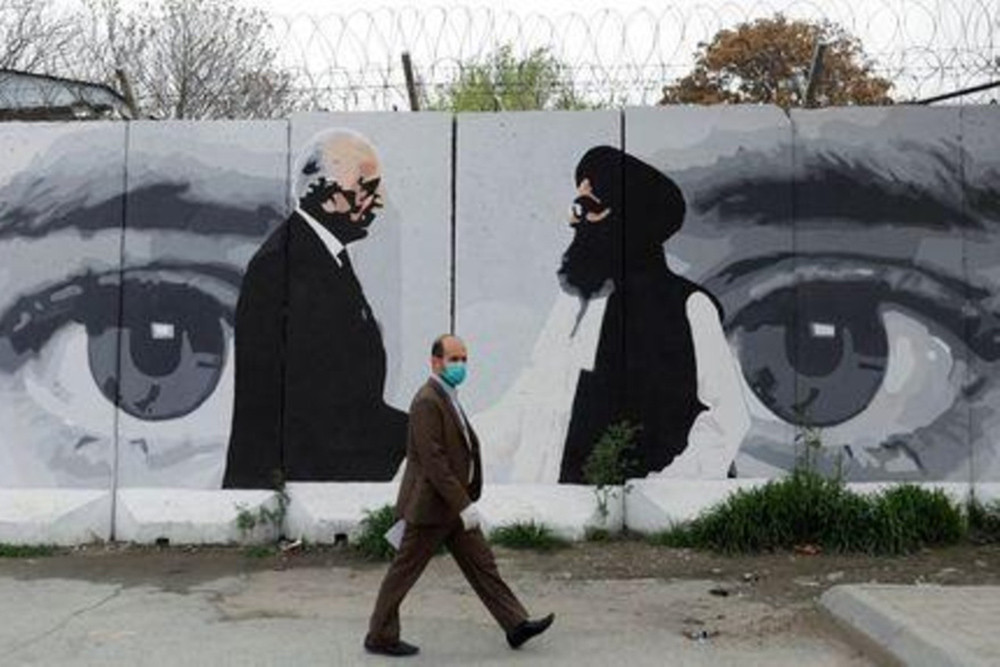 |
| An Afghan man wearing a face mask walks past a mural depicting US Special Envoy for Afghanistan Zalmay Khalilzad and Taliban leader Mullah Abdul Ghani Baradar, in Kabul, Afghanistan April 13, 2020. Photo: Reuters |
Face but heart
On the US side, since mid-July, the US Department of Defense announced that it had withdrawn troops from five military bases in Afghanistan and is currently maintaining the number of troops in the country at only about 8,500. This is a step in the plan of US President Donald Trump, which was made in his election pledge in 2016. Accordingly, Mr. Trump pledged that if elected, he would withdraw US troops from Afghanistan and end the US military's longest war abroad.
Realizing this commitment is even more important as the important presidential election in the US is about to take place. Therefore, despite the complicated epidemic situation in the country and the "consular war" with China, President Trump immediately had to send a Special Envoy to make a tour to 5 such countries.
However, despite the Afghan government’s declaration that it would not obstruct the internal negotiations with the Taliban, everyone saw an attitude of “showing respect but not being satisfied”. Clearly, this country was excluded from the agreement between the US and the Taliban. And of course, in the document signed in February, there was no mention of the future of the current Kabul government.
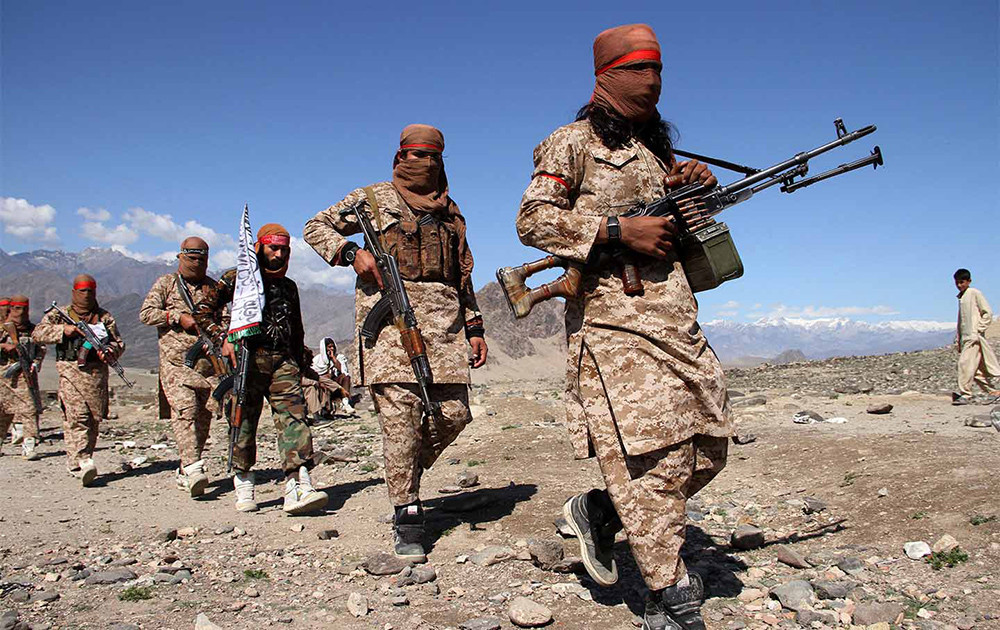 |
| Taliban fighters and civilians at a meeting celebrating the US-Taliban peace deal reached in February. Photo: NurPhoto - Getty |
Meanwhile, the Taliban rebels, once considered terrorists, have become direct negotiating partners with the US, and are considered by Washington as an indispensable factor in the path to peace in Afghanistan. Obviously, this has made the Afghan government "sad", and at the same time, they must prepare for possible unfavorable situations.
Looking back over the past time, Afghan President Ashraf Ghani has repeatedly ordered the army to switch to an “offensive mode” instead of a defensive policy; and the Taliban has not hesitated to declare its readiness to counterattack. Therefore, despite the US’s calls or the visits of the Special Envoy to Afghanistan like this time, once the interests of all parties are not really clear, the negotiation process towards a peaceful future for this South Asian country cannot proceed as smoothly as expected!

